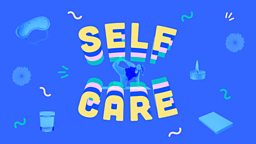Coping emotionally with coronavirus: Advice from psychotherapist Julia Samuel
How are you coping emotionally right now? “Most people have a problematic relationship with change and this pandemic is change with the volume turned up”, says psychotherapist Julia Samuel. So what can you do to try and support yourself at the moment?
Woman’s Hour asked Julia Samuel, who is also the author of This Too Shall Pass: Stories of Change, Crisis and Hopeful Beginnings, for her advice on what might help. Here are her seven tips:

1. Take care of yourself
"We do need to take care of ourselves. We should support ourselves and be compassionate with ourselves. When we are distressed we often become critical of ourselves. So keep your relationship with yourself kind. Be as self-compassionate to yourself as you would a friend.”
2. Love and connection to others is the key
“Talking, saying what you feel honestly to someone you trust and feel warmth for, is vital. This can be face-to-face or on social media or video platforms. Remember listening is the secret power of communication. Humour really helps too. If you prefer writing what you feel, an effective alternative is to journal."
3. Arguing with people in your household? Be open and honest
“Realise that we all are finding this difficult. Give yourself a break. Slow down. One thing families can do is have a sort of Cobra meeting together and just check in and say to each other, ‘I’m finding this difficult etc’, so that you’re making transparent what is being played out over the dishwasher or chopping up the carrots or whatever. So that you are more open and honest with each other.”

4. Regular exercise
“Exercise regulates your system by reducing the alert signals in your body that feel like anxiety. Even 10 minutes every day helps. You can do a 12 minute app on the phone or follow a class online. Going outside is even better. Do it everyday.”
5. Breathe
“Breathe in for the count of seven and out for the count of 11 for five minutes. More if you like. You don’t have to find your inner ‘chi’, literally breathing in and out after you’ve exercised will really help you feel more robust and resilient.”
6. Intentionally choose to do things that soothe you
“It may be listening to relaxing music, potting a plant, watching your favourite TV programme or making a cup of tea. As small as it sounds, doing familiar, comforting things reduces your stress levels.”
7. Help others
“When you feel powerless, helping others is the most powerful antidote. It might be ringing someone you know who is vulnerable, or helping a neighbour. It will make you and them feel better. It also has the side benefit of building up your immune system.”




